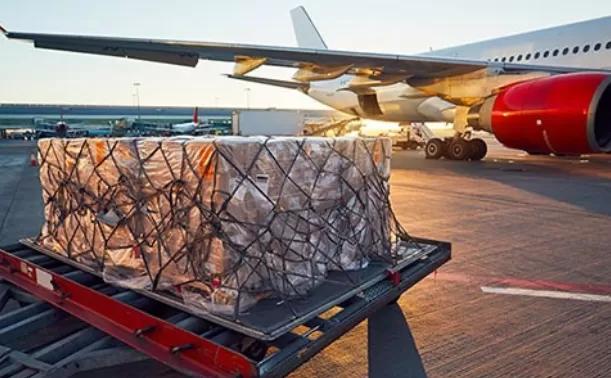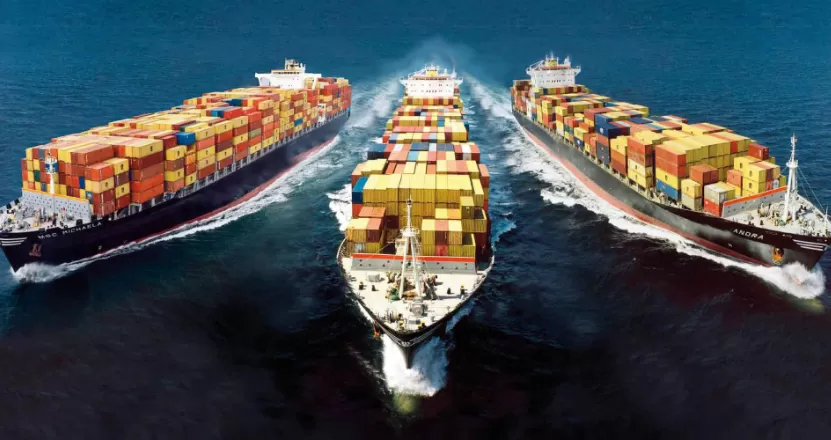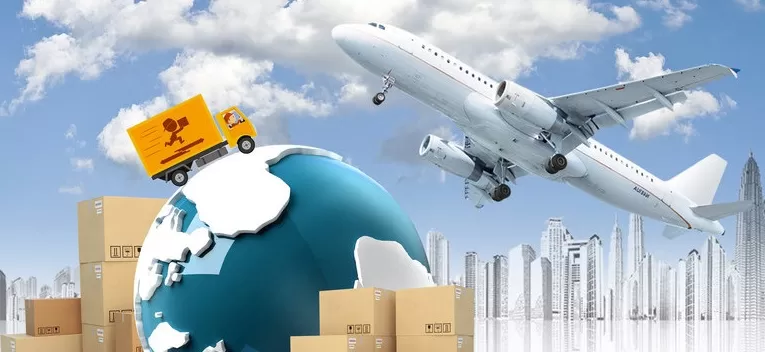For Amazon FBA sellers shipping goods from China to Portland, choosing a logistics solution that balances cost, speed, and reliability is critical. This guide compares all available options to help you make an informed decision.
Are you ready?
Get real-time quotes for Portland
Get Quotes
How to Choose the Right Shipping Method
Your choice depends on how you prioritize cost versus transit time. Here’s a quick overview:
| Shipping Method |
Estimated Cost (20' container) |
Estimated Transit Time |
Best For |
| Ocean Freight (FCL) |
$2,500 - $4,000 |
25-35 days |
Large shipments, low urgency, lowest cost |
| Ocean-Truck Intermodal |
$1,800 - $2,800 |
18-25 days |
Balancing cost and speed |
| Air Freight |
$5.5 - $7.5/kg |
5-10 days |
High-value goods, urgent restocking |
| Express Shipping |
$8 - $12/kg |
3-7 days |
Samples, small urgent parcels |
Note: Prices are estimates only. Final costs depend on fuel surcharges, season, exchange rates, and other factors.
Air Freight: Fast Restocking for Urgent Shipments
Air freight is the premier choice for rapid transportation from China to Portland, ideal for high-value, time-sensitive, or urgently needed goods. While the core flight itself is short, the entire door-to-door process involves multiple steps that determine the total transit time.
Key Steps in the Air Freight Process:
Pickup & Export Customs: Your goods are collected from the supplier and cleared for export at the Chinese airport.
Flight to U.S. Hub: Goods are flown to a major U.S. gateway airport like Los Angeles (LAX), Chicago (ORD), or New York (JFK).
Import Customs Clearance: This is a critical step. All shipments must be cleared by U.S. Customs, which can take time depending on the documentation.
Final Trucking to Portland: Once released, goods are loaded onto a truck for the final leg to your warehouse in Portland.
Total Door-to-Door Transit Time:
Express: 3-5 days (for prioritized shipments)
Standard: 5-8 days (most common timeframe including all steps)
Economy: 8-12 days (for consolidated shipments or during peak seasons)
Estimated Cost (Door-to-Door):
$5.5 - $7.5 per kg
Note: This is a general estimate. Final costs fluctuate based on fuel surcharges, market demand, seasonality, and specific cargo details.
Best For:
Urgent restocks, high-value products, perishable items, and time-critical Amazon FBA shipments. Many forwarders offer specialized services for direct delivery to Amazon FBA warehouses, handling complex requirements like appointments and labeling.
Ocean Freight: The Most Cost-Effective Choice
Ocean freight is the standard choice for large, heavy shipments and regular inventory replenishment.
Options:
FCL (Full Container Load): Use when your goods fill a 20' or 40' container.
LCL (Less than Container Load): Use for smaller shipments consolidated with others in a shared container.
Estimated Cost:
FCL (20'): $2,500 - $4,000
LCL (per CBM): $120 - $280
Estimated Transit Time: 25 - 35 days (from China port to Portland warehouse, including customs clearance and final delivery).
Process: Pick up at Chinese factory → Export customs clearance → Ocean transit to US West Coast port (e.g., LA/LB) → US customs clearance → Transfer to Portland via rail or truck → Delivery to warehouse.
Your freight forwarder
Get real-time quotes for Portland
Get Quotes
Sea + Rail (Sea + Truck)—Efficient Transit Option
Sea + Rail combines sea freight with rail transport to provide a balance of speed and cost for shipments going to Portland. Goods are shipped via sea to the West Coast and then transported by rail to inland destinations like Portland.
Estimated Cost:
$1,800–$2,500 per 20ft container
Transit Time:
14–18 days (from China to the U.S. West Coast, then rail transport to Portland)
Best for:
Medium-sized shipments, balancing cost with speed.
How it works:
Sea Freight: Goods are shipped from Chinese ports (Shanghai, Ningbo) to U.S. West Coast ports (LA, Long Beach).
Rail Transport: From the U.S. West Coast, goods are moved by rail to Portland, OR.
Advantages:
Faster than pure ocean freight.
More reliable and less risk of damage than rail-only options.
Air Freight & Express: For Urgent Shipments
Air services are your best option for fast restocking during peak seasons or to avoid stockouts.
Air Freight:
Estimated Cost: $5.5 - $7.5 / kg
Estimated Transit Time: 5 - 10 days (including customs and final delivery)
Best for: Medium-sized, high-value goods. Requires arrangement for final truck delivery.
Express Shipping:
Estimated Cost: $8 - $12 / kg
Estimated Transit Time: 3 - 7 days (Door-to-door)
Best for: Samples, small parcels, urgent deliveries. Full door-to-door service is hassle-free but the most expensive per kg.
Risks & Key Considerations
Peak Season Delays: Before holidays (Black Friday, Christmas), expect port congestion, capacity shortages, and rate increases. Plan ahead and build buffer time into your schedule.
Duties & Compliance: The US imposes tariffs on specific goods (e.g., electronics, furniture). Always verify your product's HTS code and applicable duty rate in advance and include it in your cost calculation. Non-compliant documentation will cause customs delays and storage fees.
Choosing a Partner: Work with an experienced freight forwarder specializing in Amazon FBA. They handle complex requirements like labeling, palletization, and warehouse appointments, preventing issues at delivery.
Case Study: Shenzhen Amazon FBA Seller
Product: Home goods
Volume: One 20' container (FCL)
Chosen Method: Ocean-Truck Intermodal
Total Cost: ~$3,200 (including customs clearance, duties, final trucking)
Transit Time: 21 days total (from factory pickup in Shenzhen to delivery at PDX9).
Key Takeaway: Confirmed all customs documents and duty rates with the forwarder in advance. Choosing ocean truck avoided rail transfer delays, ensuring a smooth process.
Your freight forwarder
Get real-time quotes for Portland
Get Quotes
Frequently Asked Questions (FAQ)
Q1: Should my shipment go to a West Coast or East Coast port?
A: For shipments from China, West Coast ports (e.g., LA/LB) are standard due to shorter transit time and lower cost. Goods are then transported inland to Portland via truck or rail.
Q2: How do I choose between FCL and LCL?
A: A simple rule: if your cargo volume exceeds 15 CBM, FCL is often more economical and efficient. For smaller volumes, choose LCL.
Q3: What does "door-to-door" service mean?
A: "Door-to-door" means your freight forwarder manages the entire process from picking up goods at your supplier's factory in China to delivering them to your specified destination in the US (e.g., Amazon warehouse).
Q4: How can I avoid customs clearance problems?
A: Provide accurate and detailed commercial invoices and product descriptions. Partnering with a professional freight forwarder who handles customs brokerage is recommended to ensure full compliance with US regulations.
Q5: What factors affect the cost of shipping from China to Portland?
A: Shipping costs are influenced by factors such as the shipping method, fuel surcharges, seasonal demand, the weight/volume of goods, and any applicable tariffs or duties. Additionally, exchange rates and the choice between FCL and LCL will also impact the total cost.
Q6: How do I calculate the total landed cost for my shipment?
A: The total landed cost includes the shipping cost (whether FCL, LCL, air freight, or express), customs duties, taxes, insurance, and any additional handling fees. To calculate, add these components together to get the final cost per unit.
Q7: Is insurance necessary for my shipment?
A: While not mandatory, it's highly recommended to purchase cargo insurance. This protects your goods from potential damage or loss during transit, especially if you're shipping high-value or fragile products.
Q8: How do I track my shipment from China to Portland?
A: Most freight forwarders and shipping carriers (e.g., DHL, UPS, FedEx, and ocean carriers) offer online tracking services. You’ll receive a tracking number that you can use to monitor your shipment's progress in real time.
Q9: Can I ship hazardous materials to Portland?
A: Yes, but shipping hazardous materials requires special handling and documentation. You’ll need to comply with both international and U.S. regulations. Always check with your freight forwarder about the necessary steps for safely transporting dangerous goods.
Q10: What should I do if my shipment is delayed?
A: If a delay occurs, reach out to your freight forwarder or shipping provider immediately for an update. They can help you resolve any issues and adjust delivery schedules. It's also a good practice to plan for potential delays by leaving buffer time in your logistics schedule, especially during peak seasons.
Q11: How can I reduce shipping costs when importing from China to Portland?
A: To lower costs, consider options like consolidating shipments (LCL vs. FCL), using economy shipping options, or planning shipments during off-peak seasons. Additionally, working with a reliable freight forwarder can help optimize the logistics process and negotiate better rates.
Q12: Can I ship directly to Amazon FBA warehouses from China?
A: Yes, many freight forwarders specialize in direct shipping to Amazon FBA warehouses. This service often includes labeling, palletization, and other FBA-specific requirements to ensure smooth delivery. Make sure to follow Amazon’s FBA shipment guidelines to avoid issues upon arrival.

 EN
EN
 FR
FR
 ES
ES
 JA
JA
 PT
PT
 RU
RU
 AR
AR







